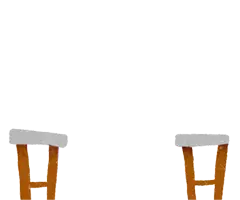Part 3Infectious and notifiable diseases
71APower of constables to assist medical officer of health in relation to infectious diseases
A constable may do any thing reasonably necessary (including the use of force)—
- to help a medical officer of health or any person authorised by a medical officer of health in the exercise or performance of powers or functions under section 70 or 71; or
- to help a person to do a thing that a medical officer of health or any person authorised by a medical officer of health has caused or required to be done in the exercise or performance of powers or functions under section 70 or 71; or
- to prevent people from obstructing or hindering a medical officer of health or any person authorised by a medical officer of health in the exercise or performance of powers or functions under section 70 or 71; or
- to prevent people from obstructing or hindering a person doing a thing that a medical officer of health or any person authorised by a medical officer of health has caused or required to be done in the exercise or performance of powers or functions under section 70 or 71; or
- to compel, enforce, or ensure compliance with a requirement made by a medical officer of health or any person authorised by a medical officer of health in the exercise or performance of powers or functions under section 70 or 71; or
- to prevent, or reduce the extent or effect of, the doing of a thing that a medical officer of health or any person authorised by a medical officer of health has forbidden or prohibited in the exercise or performance of powers or functions under section 70 or 71.
A constable acting under subsection (1) may at any time do any or all of the following things:
- enter into or on any land, building, aircraft, ship, or vehicle:
- inspect any land, building, aircraft, ship, or vehicle, and any thing in or on it:
- whether for the purposes of paragraph (a) or (b) (or both) or in the exercise of a power conferred by subsection (1),—
- stop a ship or vehicle, or a taxiing aircraft; or
- prevent a stationary aircraft, ship, or vehicle from moving; or
- prevent an aircraft or ship from departing.
- stop a ship or vehicle, or a taxiing aircraft; or
Subsection (2) does not limit the generality of subsection (1).
A constable may do a thing authorised by subsection (1) or (2) whether or not a medical officer of health has asked him or her to do so.
Sections 128, 129, and 177 of the Search and Surveillance Act 2012, with any necessary modifications, apply to the powers conferred by subsection (2)(c).
A constable does not incur any personal liability by reason of anything done by him or her in good faith in the exercise or intended exercise of a power conferred by this section.
Notes
- Section 71A: inserted, on , by section 7 of the Health Amendment Act 2006 (2006 No 86).
- Section 71A heading: amended, on , pursuant to section 116(a)(i) of the Policing Act 2008 (2008 No 72).
- Section 71A(1): amended, on , pursuant to section 116(a)(ii) of the Policing Act 2008 (2008 No 72).
- Section 71A(2): amended, on , pursuant to section 116(a)(ii) of the Policing Act 2008 (2008 No 72).
- Section 71A(4): amended, on , pursuant to section 116(a)(ii) of the Policing Act 2008 (2008 No 72).
- Section 71A(5): replaced, on , by section 330 of the Search and Surveillance Act 2012 (2012 No 24).
- Section 71A(6): amended, on , pursuant to section 116(a)(ii) of the Policing Act 2008 (2008 No 72).


